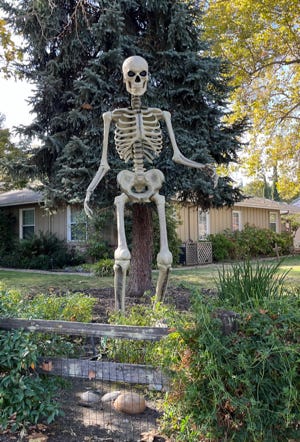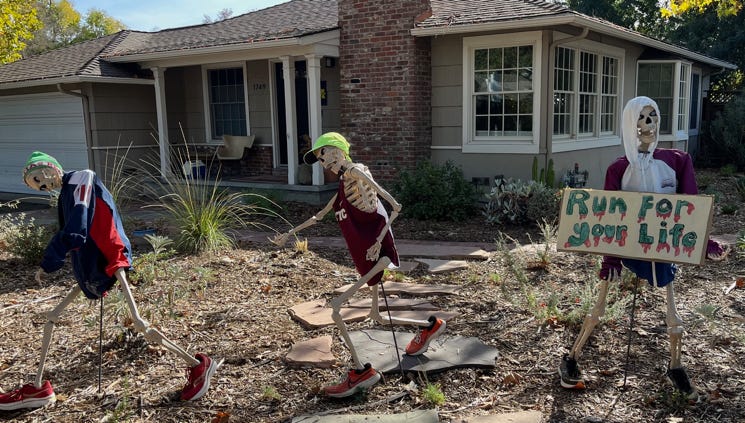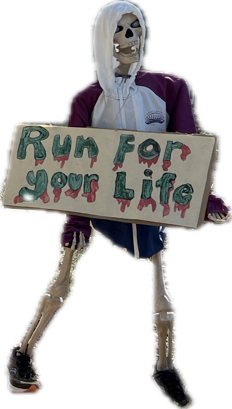Prelude
“But I’ll miss you most of all, my darlin’, when autumn leaves start to fall.” – crooner Frank Sinatra, 1957
It’s that time of year when the natural order of all things brings with it the repeated reminder that former things are passing away. And, at the same time, I watch the evening news broadcast these days with more than a bit of circumspection – if not resignation – that nothing about each successive episode in our human story ever changes; except the names, faces and places.
The ancient Book of Ecclesiastes – written some 2-3 millennia ago - enumerates there’s a time for this, a time for that, a time for everything under the sun – or heaven; including “a time to live, a time to die… a time to love, and a time to hate … a time for war, and a time for peace.” (Eccl 3:1-8).
During my own (earlier) anti-war era of the “sixties” (last century), the folk singer, Pete Seeger, modified the ending of that ancient passage just a bit in his own rendition, “Turn, Turn, Turn,“ singing, “A time for war, a time for peace,” by adding “I swear it's not too late.” (1957).
Still, with the repetitious cycle of retaliatory violence that has followed these many years later, it makes me wonder if a wholly-different change of seasons will ever come to pass.
The Mis-begotten Notion of Religious “Immunity” …
Here’s another thought: The notion of immunity has gotten a lot of attention these days. It can range anywhere from immunity from prosecution, to seasonal protection from various health contagion. The oft-heard questions people are hearing these days range from: “Would you vote for a convicted felon?” to “Have you had your various vaccinations yet this Fall?”
But there is also the age-old pitch of what I’d call “religious immunity;” where dogma and doctrine of various persuasion all tout with certitude a way to elude and escape from our basic human, mortal nature with a promise of immortality. This illusion of certainty is not confined to only the religious sector, of course. Political candidates make all kinds of illusory promises they’re unable to keep. In the process, it “contaminates” the whole manner in which human communities strive to function and formulate a way out of the inevitable cyclical treadmill. Combining religion and politics, the “Christian nationalism” movement is an overt, contemporary example.
An All-Hallowed Alternative
The other day, our cycling group was pedaling through a local neighborhood that had gone to extraordinary lengths to remind us of an upcoming holiday. Among the decorations of ghosts and goblins, witches, pumpkins, giant spiders and cobwebs, were more than a few human-like skeletons at inhuman heights of nine feet, twelve feet, or more; looming over us as we passed by. One possible message: perhaps even such once-mighty giants had not been able to elude death.
And then we came across another front yard that had three human-size skeletons, all running in fright; with one of them carrying a sign with the caption, “Run for your life!”
I took it as a metaphorical teaching moment …
This is that time of year when another question some folks are asking each other is this: Who, or what, are you going to be for Halloween? In other words, who will you be for just one day, as someone other than your self?
All of which begs the question, who are you; and who will you be the rest of the year, and the rest of your life, before you are no more? Who is your one, true, authentic self?
The three synoptic gospels provide variations to a particular saying that is attributed to the Galilean peasant sage, Jesus from Nazareth. Some biblical scholars agree the quote was likely an adaptation and/or elaboration by the persecuted early Church; who learned the possible consequences of “taking up a cross” as Jesus once did (the rest of that particular scripture passage). As such, they were all wrestling with the same existential question posed above.
“Remember, (Jesus said) those who try to save their own life are going to lose it; but those who lose their own life for my sake are going to find it. After all, what good will it do if you acquire the whole world but forfeit your life? Or what will you give in exchange for your life?” (Matthew 16:25-26)
The upcoming secularized holiday derives from the observance in the Christian faith tradition called All Hallows Eve. It precedes All Saint’s Day, when those of the “faithful departed” are remembered. The Jesus figure (or figures) depicted in the various traditions all strive to reveal to us the character of one who – with those core gospel values his own life represented and expressed -- demonstrated what it means to be that one, true authentic self.
As such, this season comes with the reminder to fall forward -- not backward -- and run for your life.
jb
© 2024 by John William Bennison, Rel.D. All rights reserved.
This article should only be used or reproduced with proper credit.
To read more commentaries by John Bennison from the perspective of a Christian progressive go to the Archives









Thanks for sharing your perspective, Steve. Fabricating a "universal computer server" sounds a bit like the old notion of making graven images. What we understand the word 'authentic' to mean is key. I suspect it goes deeper than anything AI or human ingenuity can fabricate. Like you, i prefer what Henri Frank Frankfort called myth-poeic language in his formative book, 'Before Philosophy.'
Thanks for your comment, Charles, re: falling forward. Together, we'll just have to watch our step! John